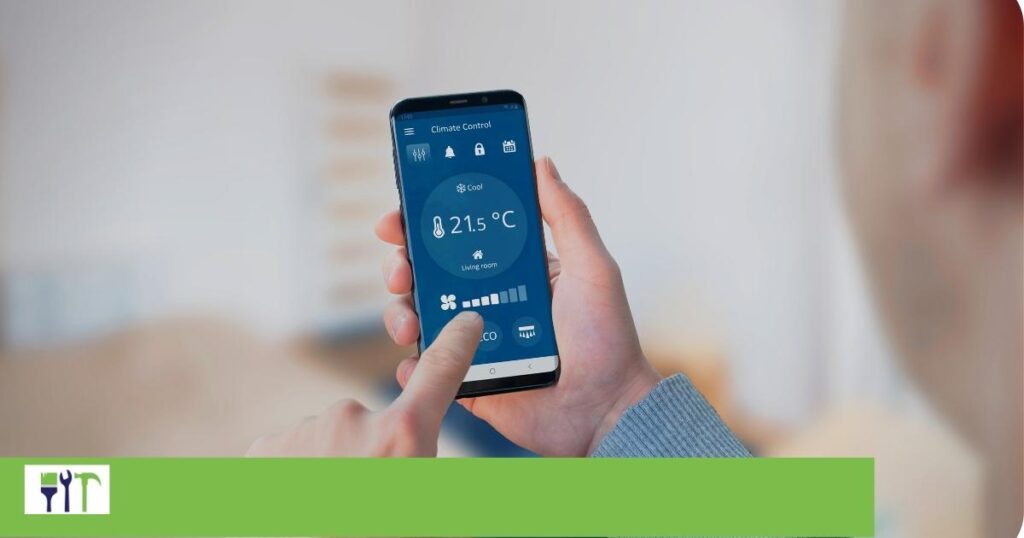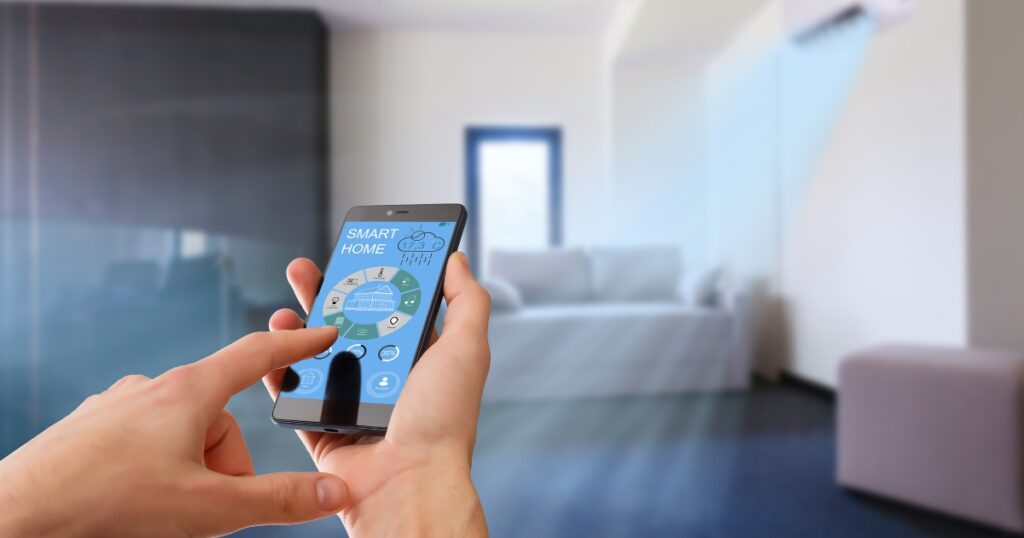
The importance of energy-efficient air conditioning use
Energy efficiency is an important consideration for both financial and environmental reasons. By using energy efficiently, individuals and households can save money on their energy bills and contribute to reducing their carbon footprint. One household appliance that can be a significant contributor to energy consumption is an air conditioning system. These systems can consume a large amount of energy, particularly during the hot summer months when they are in heavy use. However, there are steps that can be taken to use air conditioning systems in an energy-efficient manner, which can lead to significant energy and cost savings.
There are several socio-economic benefits to having an energy efficient cooled house:
- Cost savings: An energy efficient cooled house uses less energy to maintain a comfortable temperature, which can lead to lower energy bills. This can be especially beneficial for people on a fixed income or with low income.
- Environmental benefits: Energy efficient cooled houses have a smaller carbon footprint because they use less energy, which helps to reduce greenhouse gas emissions. This can help to mitigate the negative impacts of climate change.
- Improved comfort: An energy efficient cooled house is likely to be more comfortable to live in, as it will be easier to maintain a consistent temperature throughout the home. This can lead to better sleep, which can have a range of positive impacts on health and well-being.
- Increased value of a property: Energy efficient cooled houses may be more attractive to potential buyers, as they can offer cost savings and other benefits. This may increase the value of the property.
- Job creation: The demand for energy efficient cooled houses may lead to the creation of new jobs in the construction, maintenance, and repair of these homes. This can help to stimulate local economies and provide employment opportunities.
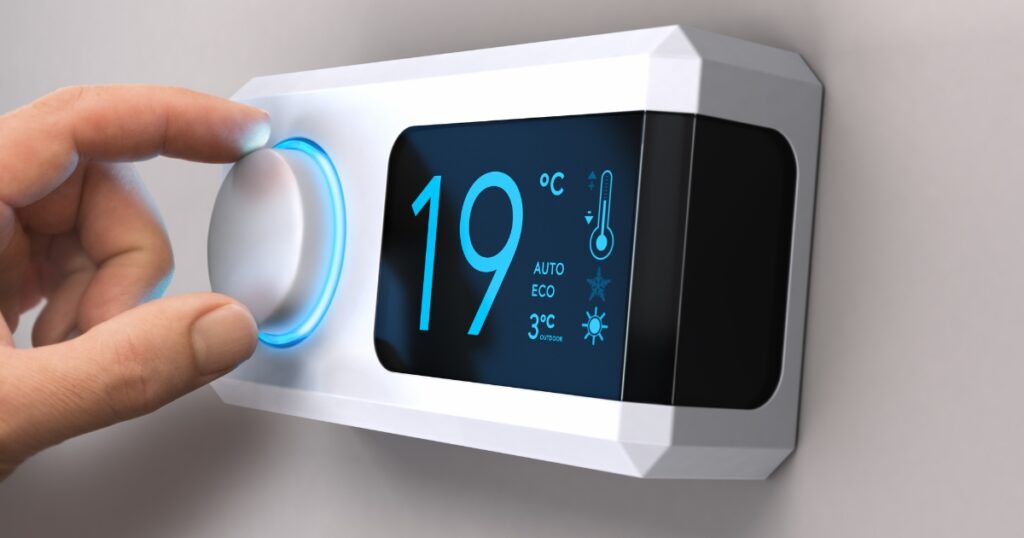
Tips for energy-efficient air conditioning use
- Set the thermostat at the highest comfortable temperature: The higher the temperature setting on the thermostat, the less energy the air conditioning system will use. Instead of setting the thermostat to the lowest possible temperature, try setting it to a higher, more comfortable temperature and see if you can still be comfortable. Every degree that you raise the thermostat can lead to significant energy and cost savings.
- Use a programmable thermostat: A programmable thermostat allows you to automatically adjust the temperature when no one is home or when you are sleeping. This can help to save energy by not cooling an empty house or by turning the air conditioning off during the night when you are under blankets and blankets naturally keep you warm.
- Keep the air filter clean: A dirty air filter can restrict the flow of air and make the air conditioning system less efficient. Make sure to regularly check and replace the air filter to ensure proper air flow.
- Use ceiling fans or other forms of air circulation: Ceiling fans and other forms of air circulation can help to improve the effectiveness of the air conditioning system by circulating cool air throughout the room.
- Seal any gaps or leaks: Gaps or leaks in the home’s windows, doors, and ducts can allow cool air to escape, making the air conditioning system work harder and use more energy. Sealing these gaps and leaks can help to prevent cool air from escaping and improve the efficiency of the air conditioning system.
- Consider using energy-efficient air conditioning units and appliances: There are many energy-efficient air conditioning units and appliances on the market that can help to reduce energy consumption. Look for units with Energy Star labels or other energy-efficient certifications.
- Use shades, blinds, or curtains to block out direct sunlight and heat: Direct sunlight and heat can cause the temperature inside a home to rise, making the air conditioning system work harder to cool the space. Using shades, blinds, or curtains to block out direct sunlight and heat can help to keep the temperature inside the home more stable and reduce the workload of the air conditioning system.
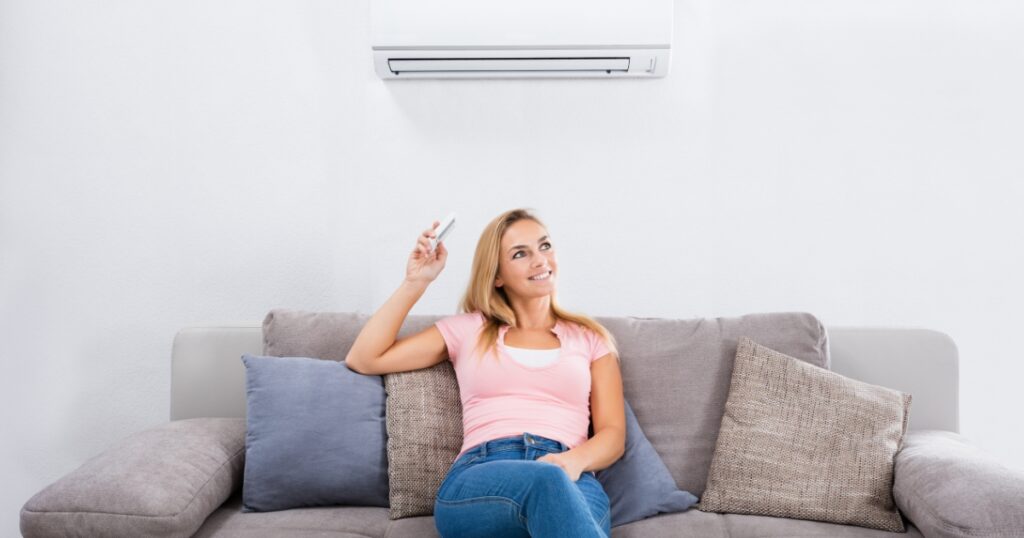
Make sure your air conditioner use is energy-efficient
Energy-efficient air conditioning use can lead to significant energy and cost savings. By following the tips listed above, individuals can use their air conditioning systems more efficiently and help reduce their carbon footprint. These tips include setting the thermostat at the highest comfortable temperature, using a programmable thermostat, keeping the air filter clean, using ceiling fans or other forms of air circulation, sealing any gaps or leaks in the home’s windows, doors, and ducts, considering using energy-efficient air conditioning units and appliances, and using shades, blinds, or curtains to block out direct sunlight and heat. By making a few simple changes, individuals can use their air conditioning systems more efficiently and save energy and money.
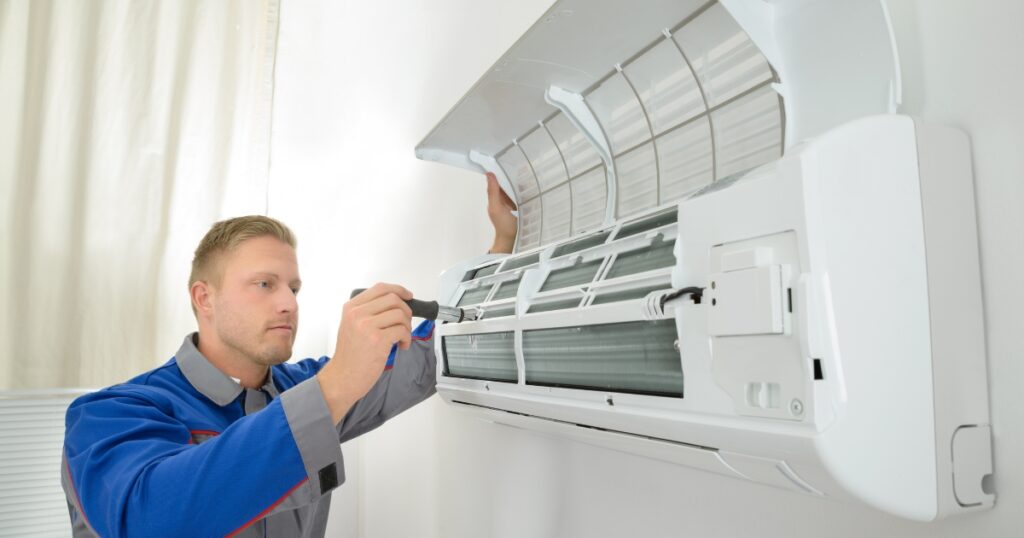
Talk to an expert
Are you looking to make sure your air conditioning is energy-efficient? Look no further than Newcastle Trades! Our team of experienced technicians can assess your current air conditioning system and provide recommendations for improvement. We can also install energy-efficient air conditioning units and appliances to help you save on your energy bills. Don’t wait any longer to upgrade your air conditioning system. Contact Newcastle Trades today and start saving energy and money.

